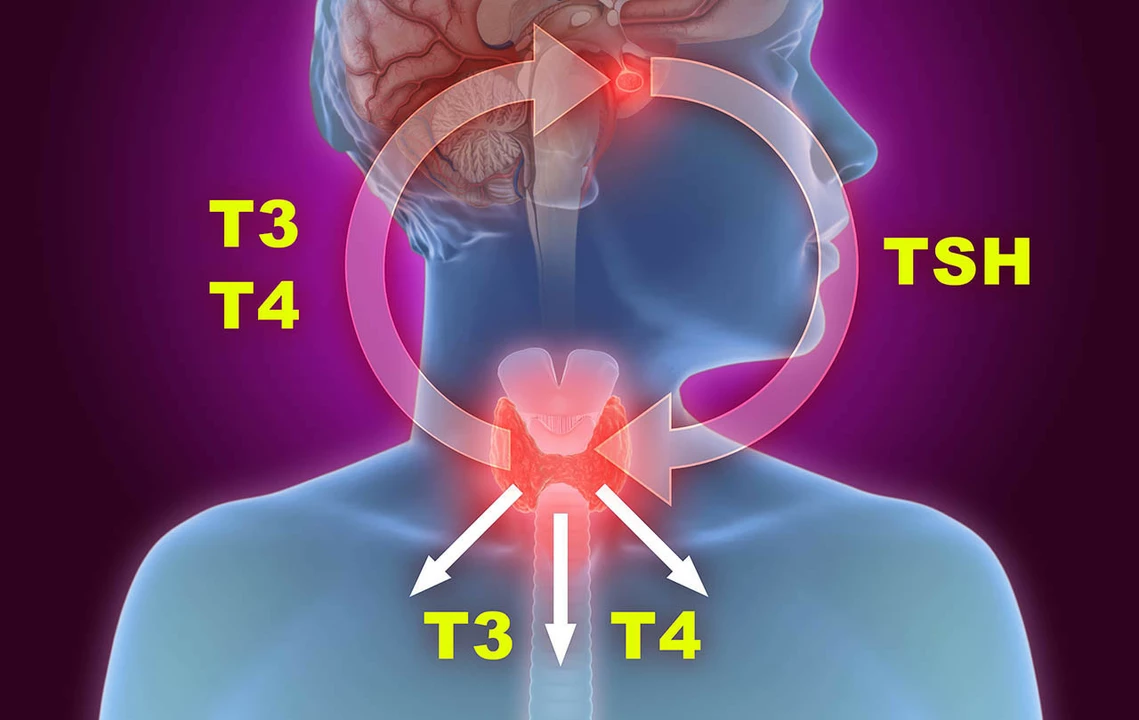Thyroid Health: What You Need to Know—Simple, Straightforward, No Nonsense
The thyroid is a tiny gland, but when it’s out of whack, you’ll know. One day you might feel like you could run a marathon, the next you barely want to get out of bed. Thyroid problems aren’t rare, but figuring them out can be confusing, and sometimes feels like solving a puzzle with missing pieces. This page is here to cut through the noise and give you direct, usable information about thyroid health, symptoms, and treatments.
If you’ve been told your thyroid isn’t working right—maybe you’ve got hypothyroidism (low thyroid) or hyperthyroidism (overactive thyroid)—you’re not alone. A lot of folks struggle with weird symptoms before ever getting a solid answer. Think unexpected weight changes, tiredness that won’t go away, feeling anxious or down, hair loss, and even trouble concentrating. The thyroid hits a lot of systems, so its symptoms can look like a bunch of other things.
Medication is a big part of living with thyroid problems. Synthetic hormones (like levothyroxine for underactive thyroid) can make all the difference, but dosing takes time to get right. Missing meds or switching brands can mean days of feeling off. And for those with an overactive thyroid, treatments include antithyroid drugs, radioactive iodine, or sometimes even surgery. Each option comes with its own pros, cons, and side effects—which can be surprising if you’re not prepared.
It’s not just about popping a pill, either. Diet, supplements, and stress can play a role in thyroid health, but not in the magical way social media sometimes claims. Foods with too much or too little iodine, for example, actually can mess with your thyroid function. Some people try supplements, hoping they’ll help, but not all have solid proof behind the hype (and some can even make things worse). If you’re considering supplements for thyroid support, it’s best to compare real facts and check with a doctor—especially since some products interact with thyroid meds.
One thing that trips up many people: knowing when to ask about a thyroid test. If your symptoms have stuck around for more than a few weeks and you’ve ruled out obvious causes like lack of sleep or stress, it’s worth talking to your doctor. Blood tests for TSH, T3, and T4 can pinpoint if your thyroid is the real culprit behind those nagging problems.
This page is your jump-off spot for everything thyroid: straightforward guides on medications, tips for managing symptoms, news about treatments, and honest comparisons between drugs and supplements. Whether you're newly diagnosed or have been juggling thyroid meds for years, you’ll find clear, no-jargon answers to help you take charge of your health. Got questions? Chances are, you’ll find what you need here without having to decipher medical gobbledygook.
Carbimazole and Your Immune System: What You Need to Know
As a blogger, I recently came across a crucial topic regarding Carbimazole and its impact on our immune system. Carbimazole is a medication commonly prescribed for treating hyperthyroidism, and it works by reducing the thyroid hormones in our body. While it can be effective in managing the condition, it's important to be aware that it may also weaken our immune system. This could make us more susceptible to infections and illnesses, so it's essential to monitor our health closely while taking Carbimazole. Consult with your healthcare professional if you experience any side effects or have concerns about your immune system while on this medication.
